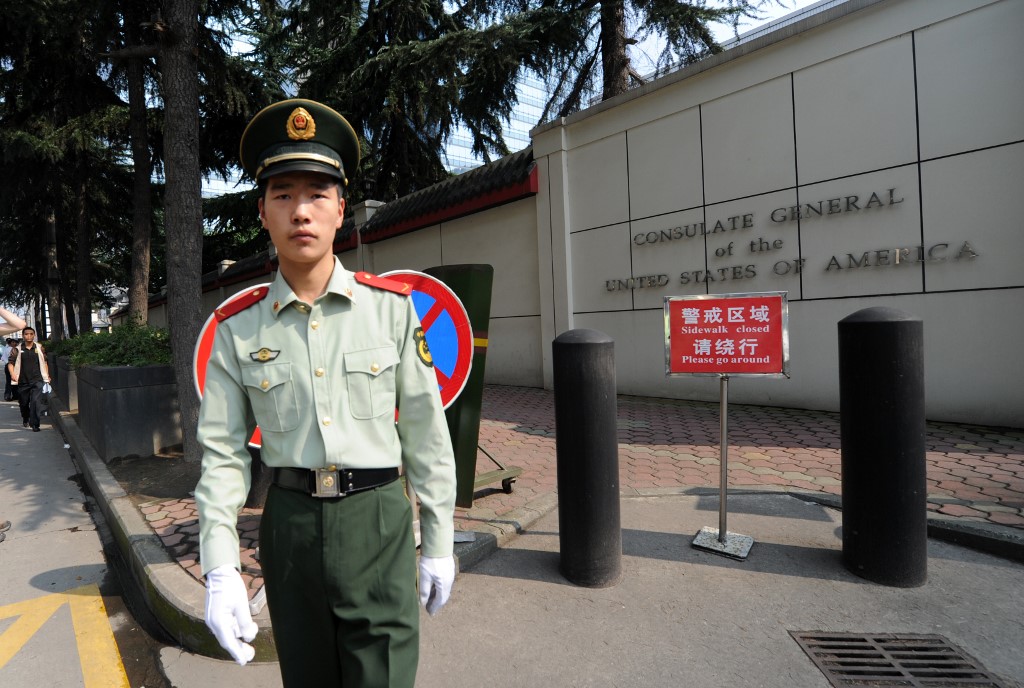(ATF) China’s retaliatory move ordering the United States to shut its consulate in Chengdu city days after it was asked to close its consulate in Houston could be more damaging than a trade war to the global economy, reeling from a pandemic that is still spreading.
Financial markets panicked, the dollar slid and safe-haven gold surged to near all-time highs after the tit-for-tat moves capped a furious week of Cold War-style diplomacy.
“This is unprecedented and there is a risk of further diplomatic tensions,” Alicia Garcia Herrero, Natixis’ Chief Economist for the Asia Pacific, said.
“Any escalation would make it more serious than even a trade war – if the world’s two biggest economies snap their diplomatic relations, it would cause unimaginable damage to the global economy and markets. It would be a game-changer.”
Relations between Washington and Beijing have deteriorated sharply this year over a range of issues, from trade and technology to the coronavirus, China’s territorial claims in the South China Sea and its clampdown on Hong Kong.
“The US move seriously breached international law, the basic norms of international relations, and the terms of the China-US Consular Convention. It gravely harmed China-US relations,” China’s foreign ministry said, when it ordered the US consulate in the southwestern city of Chengdu shut.
“The Ministry of Foreign Affairs of China informed the US Embassy in China of its decision to withdraw its consent for the establishment and operation of the US Consulate General in Chengdu,” it said.
Swift market reaction
Markets reacted quickly – Mainland China’s benchmark CSI300 tumbled 4.39%, while the regional MSCI Asa ex-Japan benchmark fell 1.74%.
Meanwhile, the dollar dropped to 22-month lows against a basket of currencies and gold jumped 0.4% to 1,894 an ounce. The yuan slipped 0.2% versus the dollar.
“Another escalation in tensions in the Sino-US relationship is extremely unfavourable to economic recovery under the impact of the pandemic,” China Construction Bank analysts wrote in a note.
“We expect that before the dust settles on November’s US presidential election, the US will repeatedly provoke contradictory disputes with China. We will closely monitor the implementation of the Phase 1 trade deal between the US and China,” they said.
Houston has a problem
Earlier this week, relations between the world’s two biggest economies deteriorated further after Washington ordered the closure of the Houston consulate on Tuesday within three days.
The order on Houston came a day after the US Justice Department unveiled the indictment of two Chinese nationals for allegedly hacking hundreds of companies and attempting to steal coronavirus vaccine research.
The Justice Department then announced Thursday indictments of four Chinese researchers that it said lied about their ties to the People’s Liberation Army. One of them avoided arrest by taking refuge in another Chinese consulate in San Francisco.
Also on Thursday, in a fiercely critical speech, US Secretary of State Mike Pompeo said Washington and its allies must use “more creative and assertive ways” to press the Chinese Communist Party to change its ways, calling it the “mission of our time.”
The Chengdu consulate was established in 1985, and has around 200 staff with approximately 150 locally hired Chinese staff, according to its website.
























